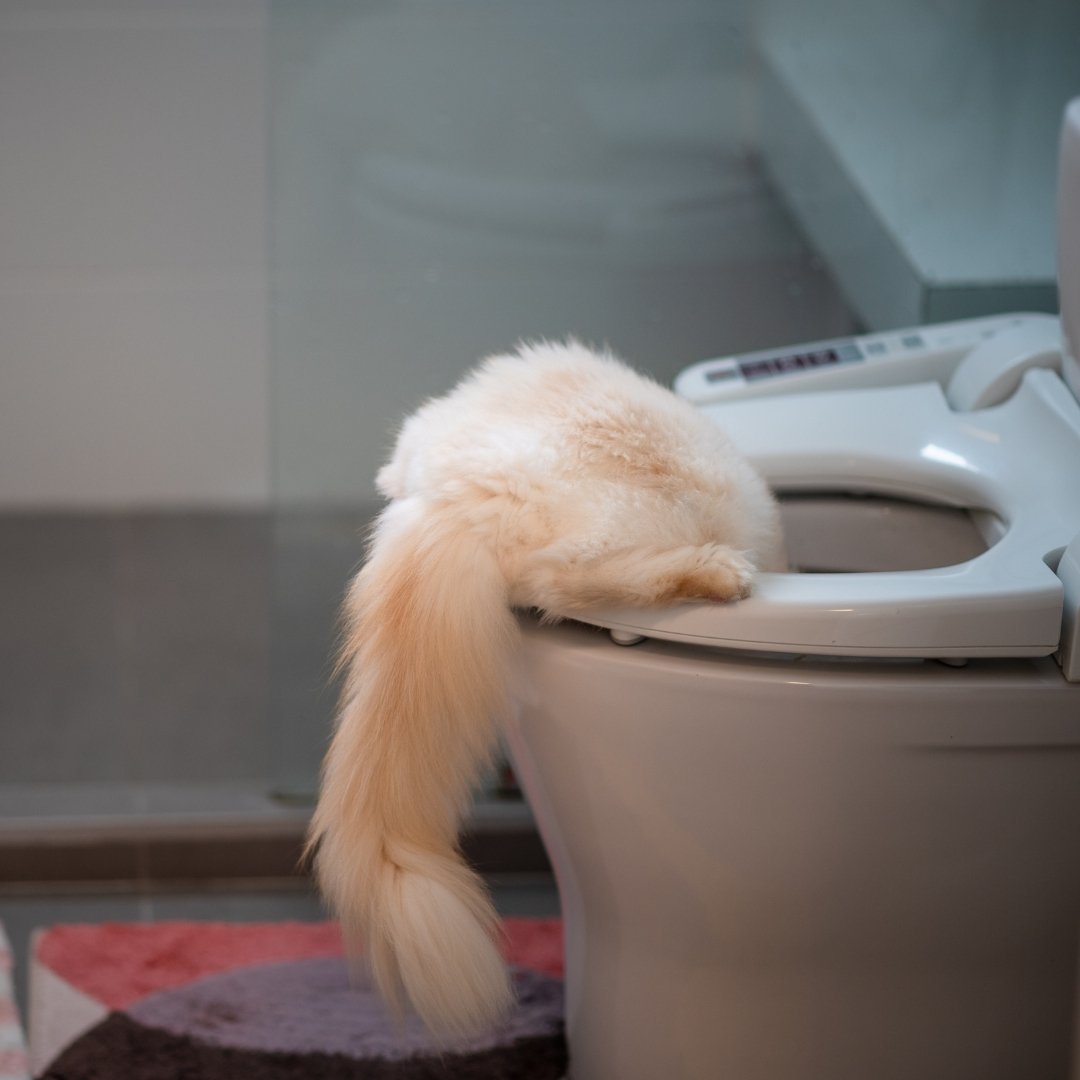Potential Risks of Flushing Cat Poop Down Your Toilet - Tips for Safer Handling
Potential Risks of Flushing Cat Poop Down Your Toilet - Tips for Safer Handling
Blog Article
What're your beliefs on Don’t flush cat feces down the toilet?

Introduction
As pet cat proprietors, it's essential to bear in mind how we take care of our feline close friends' waste. While it might seem practical to flush pet cat poop down the toilet, this method can have detrimental consequences for both the environment and human health and wellness.
Ecological Impact
Purging feline poop presents harmful virus and bloodsuckers into the water supply, positioning a considerable threat to marine ecological communities. These impurities can adversely affect marine life and compromise water quality.
Wellness Risks
Along with environmental problems, flushing pet cat waste can likewise pose wellness dangers to human beings. Feline feces might consist of Toxoplasma gondii, a parasite that can trigger toxoplasmosis-- a possibly serious ailment, especially for expectant women and people with damaged immune systems.
Alternatives to Flushing
The good news is, there are safer and a lot more liable ways to take care of cat poop. Think about the adhering to options:
1. Scoop and Dispose in Trash
The most usual method of taking care of pet cat poop is to scoop it right into an eco-friendly bag and toss it in the garbage. Make certain to utilize a specialized clutter inside story and dispose of the waste immediately.
2. Use Biodegradable Litter
Select eco-friendly cat litter made from products such as corn or wheat. These litters are eco-friendly and can be securely taken care of in the garbage.
3. Bury in the Yard
If you have a yard, think about burying cat waste in an assigned location away from veggie gardens and water sources. Make sure to dig deep enough to stop contamination of groundwater.
4. Mount a Pet Waste Disposal System
Purchase a family pet garbage disposal system especially designed for cat waste. These systems make use of enzymes to break down the waste, decreasing odor and environmental effect.
Final thought
Responsible animal possession extends beyond supplying food and sanctuary-- it additionally includes correct waste monitoring. By refraining from flushing feline poop down the bathroom and going with alternative disposal methods, we can reduce our environmental footprint and safeguard human health and wellness.
Why You Should Never Flush Cat Poop Down the Toilet
A rose by any other name might smell as sweet, but not all poop is created equal. Toilets, and our sewage systems, are designed for human excrement, not animal waste. It might seem like it couldn’t hurt to toss cat feces into the loo, but it’s not a good idea to flush cat poop in the toilet.
First and foremost, assuming your cat uses a litter box, any waste is going to have litter on it. And even the smallest amount of litter can wreak havoc on plumbing.
Over time, small amounts build up, filling up your septic system. Most litter sold today is clumping; it is made from a type of clay that hardens when it gets wet. Ever tried to scrape old clumps from the bottom of a litter box? You know just how cement-hard it can get!
Now imagine just a small clump of that stuck in your pipes. A simple de-clogger like Drano isn’t going to cut it. And that means it’s going to cost you big time to fix it.
Parasitic Contamination
Believe it or not, your healthy kitty may be harboring a nasty parasite. Only cats excrete Toxoplasma in their feces. Yet it rarely causes serious health issues in the cats that are infected. Most people will be fine too if infected. Only pregnant women and people with compromised immune systems are at risk. (If you’ve ever heard how women who are expecting are excused from litter cleaning duty, Toxoplasma is why.)
But other animals may have a problem if infected with the parasite. And human water treatment systems aren’t designed to handle it. As a result, the systems don’t remove the parasite before discharging wastewater into local waterways. Fish, shellfish, and other marine life — otters in particular — are susceptible to toxoplasma. If exposed, most will end up with brain damage and many will die.
Depending on the species of fish, they may end up on someone’s fish hook and, ultimately on someone’s dinner plate. If that someone has a chronic illness, they’re at risk.
Skip the Toilet Training
We know there are folks out there who like to toilet train their cats. And we give them props, it takes a lot of work. But thanks to the toxoplasma, it’s not a good idea.

Hopefully you enjoyed our piece about How to Dispose of Cat Poop and Litter Without Plastic Bags. Thank you for taking a few minutes to read our piece of content. So long as you enjoyed our blog posting plz remember to share it. Thanks for your time. Kindly visit our site back soon.
Click Here To Read More Report this page